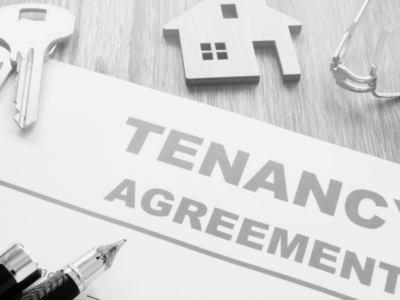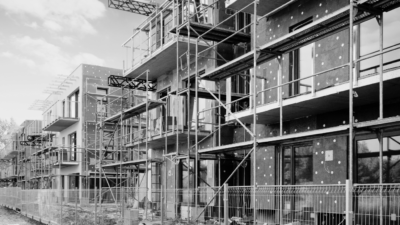Government plans are still pushing the UK towards a green future, with upcoming housing and construction initiatives aimed at reducing carbon emissions and increasing energy efficiency.
The end goal remains to reach net zero emissions by 2050, and the Future Homes Standard is the next big step on this path. But is the new build industry ready for these new initiatives?
Has the government provided enough support to developers and the workforce? What has the industry been doing whilst awaiting the 2025 launch of the future homes standard?
What is The Future Homes standard?
In 2021, the government announced the Future Homes Standard after a consultation period from 2019 to 2020.
The new building regulations will come into force in 2025 and will require all new homes to be 75-80% more energy efficient than those built today.
They will also need to be built ready to transition to net zero emissions.
The standard includes a combination of measures, including:
- Switching to low-carbon heating systems, such as heat pumps.
- Adopting a “fabric-first” approach to improve insulation and efficiency.
- Overhauling the Standard Assessment Procedure (SAP). The largest update to the SAP process since its inception aimed at measuring a more accurate EPC rating.
- Ensuring that new build homes and buildings are “zero carbon ready” needing no further retrofitting to reach net zero by 2050.
Ready for Zero: Evidence to inform the 2025 Future Homes Standard – Task Group Report
Those in the new build sector have not been sitting idle waiting to be told what to do next by the government.
On the 28th of February 2023, the Future Homes Hub posted the “ready-for-zero report”.
This report showcased findings from discussions and analysis of potential approaches the government could take when implementing the Future Homes Standard.
Over 170 experts from over 100 organisations participated in 20 work groups discussing stakeholder views on the question; “What should the Future Homes Standard 2025 look like?”.
The hope was to share their findings with the government, helping them understand the opportunities and barriers they may face during the implementation of the Future Homes Standard.
This resulted in twenty-six recommendations for effective implementation, with seven core subjects underpinning these, and showcased a comprehensive overview of the potential implementation strategies available to the government.
The new build sector is not only ready for a greener future, they are taking the initiative to research and support government plans in order to ensure the whole industry is prepared for the 2025 transition. One of the seven core subjects identified was for the government to announce key decisions as early as possible.
With those in the new build sector doing their part to prepare, it is just as important that the government communicates with and supports the industry throughout the process.
Is the government providing enough support to developers and the workforce?
Clearly, those in the new homes sector are prepared to be involved in the process and are willing to help with the future homes standard. But the industry wants to see it done right, without small builders being crushed by the new standard or the market unable to cope with the increased demand for new technology such as heat pumps.
So, has the government been helping to prepare the industry and support developers?
According to the net zero innovation portfolio, support for decarbonising homes and buildings has been introduced, with the latest update added on 11th August 2023.
These include:
- Green Home Finance Accelerator: Pilot Phase, aimed at providing funding to UK finance providers who are offering innovative finance propositions that encourage domestic energy efficiency, low carbon heating and micro-generation retrofit.
- Heat Pump Ready Programme, supports the development of innovative solutions across the heat pump sector.
Not included in the portfolio but also currently available:
- The Heat Networks Investment Project, which supports the development of heat networks.
- New artificial intelligence (AI) solutions, Twelve green AI initiatives will receive a share of £1 million to decarbonise and boost generation of renewable energy.
These solutions focus on innovation, finance, and development across the sector and are vital to the success of reaching net zero.
Those in the industry, however, need confirmation that the workforce implementing them will also be supported.
The new build workforce and developers want training and financial support to ensure they can follow the new guidelines. As of 25th July 2023, training has started with £8.85 million of funding provided to offer courses in retrofitting and installing insulation, intending to train up to 8,000 people across England. Hopefully, this is only the start of the support for actual workers.
Danny Luke, whose company Quick Move Now works closely with new home developers, said:
“The government is moving in the right direction providing both innovation and training, however the key to ensuring this success, as the Future Homes Hub put forward, remains consistent and early communication regarding key decisions.
We do not know the specifics regarding how the Future Homes Standard will be implemented and we must ensure the entire industry is able to prepare in advance for all the changes it will bring.”





















Comments